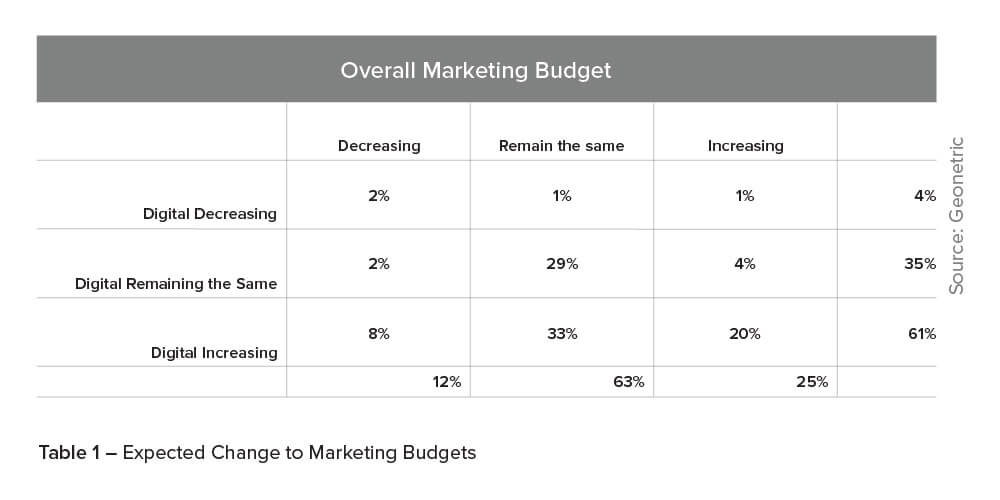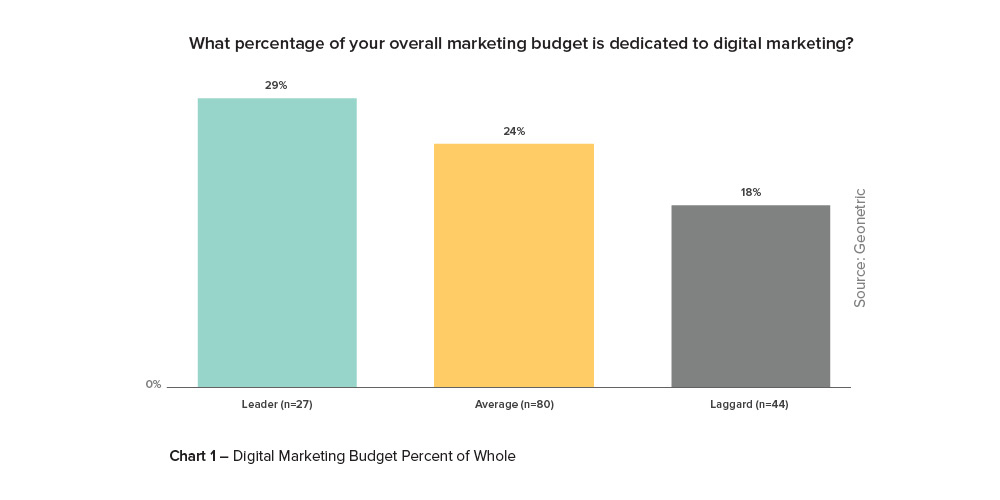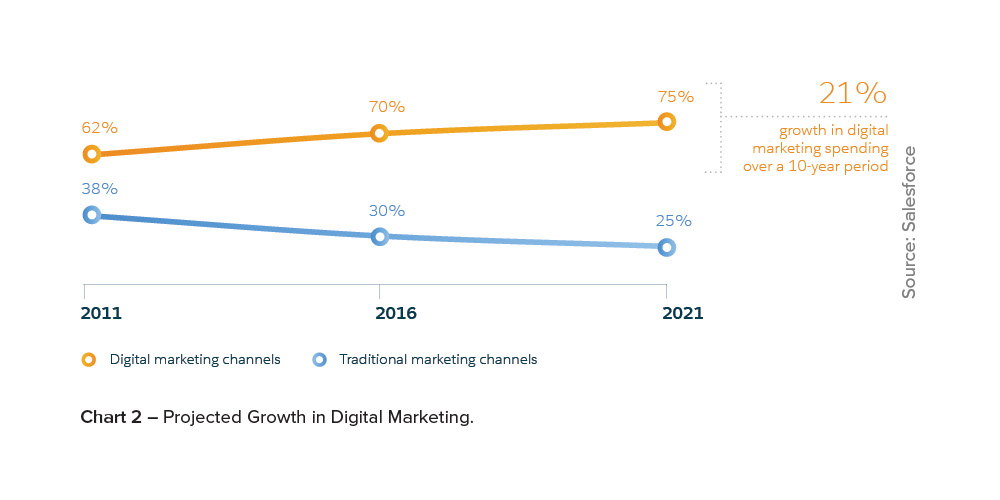We’ve crunched the numbers, donned our data scientist hats and drafted the copy. And now that the 2016 Digital Marketing Trends in Healthcare Marketing Survey is available, I’m excited to dive in and share some thoughts on what the data reveals. There’s a lot that healthcare marketers will find of interest in the results, but some of the things that I find exciting relate to the changing trends in healthcare marketing, how these fit (or don’t) into the larger forces shaping B2C marketing, and what takeaways are important for healthcare marketers going forward.
Budgets Shifting to Digital
It’s no surprise, really, to see digital account for an increasingly large percentage of the overall healthcare marketing budget. Even when overall marketing budgets are staying the same or diminishing we’re seeing the percentage of marketing budget allocated to digital continue to grow (see Table 1 below).

In addition, external vendors who provide healthcare brands with marketing services share this outlook. 76% of them expect the digital marketing budgets of their clients to increase (see Chart 1 below).

From a strategy standpoint, investments in digital certainly aren’t going away. In fact, I’m bullish on digital marketing in healthcare and expect it to grow dramatically. Here’s why.
Digital Budgets Continue Growing
There are a few factors driving the growth in digital marketing across industries, and these can’t help but have an impact on healthcare marketing. The major driver is that consumers are increasingly leading digital lives. Not only is their total time spent online increasing, but one in five Americans reports being online “almost constantly.” This number grows to nearly 40% for 18–29 year olds.1 In order to be effective, marketing must meet consumers where they are. And increasingly this means digital.
But there’s another reason to expect dramatic growth in how healthcare marketers invest in digital: we’re behind other B2C industries in how we allocate budget between traditional marketing and digital marketing. While healthcare marketing leaders may report spending nearly 30% of budget on digital, that’s still a far cry from the 70% total marketing budget reported by other B2C marketers.

For example, 2016 benchmark B2C research from Salesforce reveals that today, nearly 70% of marketing budget is devoted to digital. This is expected to grow to 75% by 2021 (see Chart 2 above).2 And it’s not just technology vendors reporting these kind of numbers. Other research points to the same trend. Even AdWeek reveals that over a third of CMOs expect digital marketing to account for more than 75% of their budgets within five years.3
Why then are healthcare marketers still investing so much in traditional marketing?
Perhaps we’ve yet to catch up. One of the most common laments I hear from healthcare digital marketers is the difficulty they have convincing their managers of the importance of digital marketing in organizations defined by traditional marketing. Often they recount feeling like “second class citizens” on their marketing teams, and have to advocate and prove their worth in ways that their colleagues do not. Certainly this explains part of the disparity we see between healthcare marketing and the broader world of B2C marketing, but there’s also an increasingly vocal segment that insists that healthcare marketing is fundamentally different than traditional B2C marketing.
And they have a point. In healthcare marketing we are bound by laws, legislation and certain ethical standards that other B2C marketing teams don’t have to deal with. But even though this is part of the context of our marketing work, we can’t use it to insist on a rearward facing marketing agenda. There’s too much at stake for our brands—and ultimately the health of our patients—to continue without change. Because of this, we’ll continue to see healthcare brands bet big on digital, even at the expense of their traditional marketing budgets. The potential of a winning digital strategy is simply too great to ignore.
